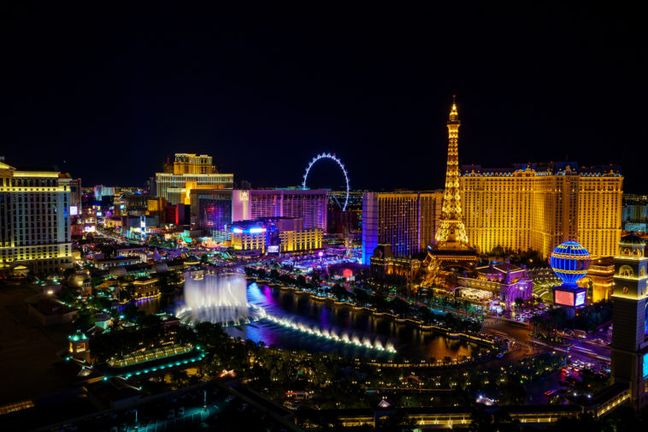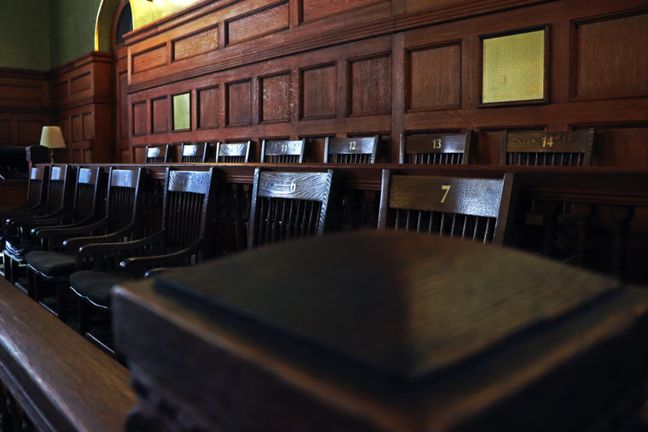Boca Park Martketplace Syndications Group, LLC v. Higco, Inc., 133 Nev.Adv.Op. 114, No. 71085 (December 28, 2017).
Background
This case involves a commercial landlord-tenant dispute. In 2002, plaintiff Higco, Inc. (“Higco”) became one of Boca Park Martketplace Syndications Group, LLC’s (“Boca Park”) tenants in a Las Vegas shopping center. The parties entered into a 20-year written lease agreement in which the parties agreed Higo would have the exclusive right to operate a tavern in the shopping center. In addition, the agreement gave Higco the exclusive right to provide gaming services (i.e., gambling) in the shopping center, excluding any current tenants which were permitted to continue providing gaming facilities if already operating the same.
Around 2012, Higco learned a new restaurant was now leasing space at the shopping center and it intended to provide slot machines. Higco accordingly filed a lawsuit for a declaratory judgment, asking the court to interpret the agreement as providing Higco with the exclusive right to provide gaming services. Boca Park opposed the declaratory judgment, but the court sided with Higco, finding the agreement was unambiguous and provided Higco the exclusive right to gaming in the shopping center.
Higco then tried to reach settlement with Boca Park for damages, as Boca Park continued to allow the new restaurant to run slot machines. After negotiations broke down, Higco filed a new lawsuit for breach of contract and breach of the implied covenant of good faith and fair dealing. In response, Boca Park filed a motion to dismiss the complaint, arguing claim preclusion prevented Higco from bringing its claims because they should have been brought at the time Higco filed for a declaratory judgment. The District Court denied Boca Park’s motion to dismiss, and the case proceeded to a bench trial. The court ultimately awarded Higco $497,000 in damages for breach of contract.
Boca Park’s Appeal
Boca Park appealed the damages award and argued the District Court erred in refusing to grant its motion to dismiss based on claim preclusion. Claim preclusion (also known as res judicata) is a doctrine found in most jurisdictions “designed to promote finality of judgments and judicial efficiency.” Claim preclusion requires a party to bring all claims against a defendant, based on the same set of facts or actions of defendant, in one lawsuit, or lose the opportunity to bring those related claims at a later date. Once a court renders a final judgment, a party cannot bring a subsequent lawsuit based on the same claim or a claim that “could have been asserted in the first case.”
Despite the need for courts to promote finality in judgments, many jurisdictions have carved out exceptions to the claim preclusion doctrine. In reaching its decision in this case, the Nevada Supreme Court reviewed how other jurisdictions have handled declaratory judgments with respect to claim preclusion, and found the following reasoning persuasive:
When a plaintiff seeks solely declaratory relief, the weight of authority does not view him as seeking to enforce a claim against the defendant. Instead, he is seen as merely requesting a judicial declaration as to the existence and nature of a relation between himself and the defendant. The effect of such a declaration, under this approach, is not to merge a claim in the judgment or to bar it. Accordingly, regardless of outcome, the plaintiff or defendant may pursue further declaratory or coercive relief in a subsequent action.[1]
After outlining its findings, the Court held “claim preclusion does not apply where the original action sought only declaratory relief.” However, for this new declaratory judgment exception in Nevada to apply in a case, “the original action must have only sought declaratory relief.”
The Court also found claim preclusion following an action for declaratory relief was inconsistent with the Nevada statutes allowing for declaratory relief (NRS 30.010 to 30.160). For instance, NRS 30.050 states: “A contract may be construed either before or after there has been a breach thereof.” Thus, one could seek a declaratory judgment regarding the interpretation of a contract prior to any breach; therefore, the party could not possibly have included a breach of contract claim in its declaratory judgment lawsuit, since there was no breach at the time. The Court was also persuaded by a New Mexico court’s interpretation of a similar legislative scheme, which found it “expressly permit[s] a party to bring one action requesting only a declaratory judgment and then to bring a separate action for further relief based on the rights determined by that judgment.”[2]
After announcing declaratory relief is an exception to claim preclusion in Nevada, the Court determined the exception applied in Higco’s case. Therefore, Higco was within its rights to file a lawsuit against Boca Park for breach of contract after obtaining declaratory relief.
Significance
Parties in Nevada now know if a plaintiff seeks solely declaratory relief in a lawsuit, the same plaintiff may later file a subsequent lawsuit asserting claims based on the same subject matter as the declaratory relief lawsuit, and claim preclusion does not apply.
[1] Restatement (Second) of Judgments § 33.
[2] Bankers & Shippers Ins. Co. of N.Y. v. Electro Enters., Inc., 415 A.2d 278, 285 (Md. 1980).

 Author: Christopher Lund
Author: Christopher Lund
 Cannabis Workers Allege Quota to Trim 4 Pounds a Day Violates the California Labor Code
Cannabis Workers Allege Quota to Trim 4 Pounds a Day Violates the California Labor Code
 The Ninth Circuit Reminds Us: Every Word Matters
The Ninth Circuit Reminds Us: Every Word Matters
 NO WAY, PRO SE! The Consequences of Abusing the Judicial System as a Pro Se Litigant in Colorado
NO WAY, PRO SE! The Consequences of Abusing the Judicial System as a Pro Se Litigant in Colorado
 Victim of Financial Mismanagement or Unlawful Retaliation? New Jersey City University Program Founder Claims School Retaliated After Reporting Alleged Sexual Harassment
Victim of Financial Mismanagement or Unlawful Retaliation? New Jersey City University Program Founder Claims School Retaliated After Reporting Alleged Sexual Harassment
 “Real Housewives” Gets a Reality Check
“Real Housewives” Gets a Reality Check
 Missing a Chapter: Insufficiency of Expert Deposition Testimony in Medical Malpractice Litigation
Missing a Chapter: Insufficiency of Expert Deposition Testimony in Medical Malpractice Litigation
 Crash Course: Why Summary Judgment Misses the Mark in Illinois Multi-Cause Limousine Crash Collision
Crash Course: Why Summary Judgment Misses the Mark in Illinois Multi-Cause Limousine Crash Collision
 Bitter Truths: Lead, Cadmium, and Defective Pleadings in California Chocolate Class Action
Bitter Truths: Lead, Cadmium, and Defective Pleadings in California Chocolate Class Action
 The Law of Unintended Consequences: Including Insurance Brokers in Litigation Strategy Communication May Waive the Attorney-Client Privilege
The Law of Unintended Consequences: Including Insurance Brokers in Litigation Strategy Communication May Waive the Attorney-Client Privilege
 Federal Judge Throws Out Portion of Coverage Lawsuit in Nevada
Federal Judge Throws Out Portion of Coverage Lawsuit in Nevada
 Defenses Raised in an Answer Can Be Waived if Not Timely Reaffirmed in Discovery
Defenses Raised in an Answer Can Be Waived if Not Timely Reaffirmed in Discovery
 Nevada Court of Appeals Refuses to Define Breach of the Peace for Self-Help Repossession
Nevada Court of Appeals Refuses to Define Breach of the Peace for Self-Help Repossession
 Defendants Entitled to Attorney Fees as Prevailing Party in Voluntary Dismissal Cases Under Certain Circumstances
Defendants Entitled to Attorney Fees as Prevailing Party in Voluntary Dismissal Cases Under Certain Circumstances
 Nevada Limits Access to Police Body Camera Footage
Nevada Limits Access to Police Body Camera Footage
 Nevada Clarifies Exceptions to the American Rule of Attorney Fees
Nevada Clarifies Exceptions to the American Rule of Attorney Fees
 Actual Notice and Mailing Checks in Nevada
Actual Notice and Mailing Checks in Nevada
 Jury Demand within Complaint is Insufficient in Nevada
Jury Demand within Complaint is Insufficient in Nevada